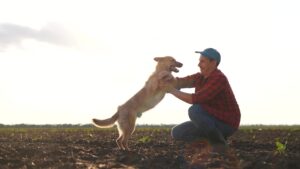By McKenna Horsley
Kentucky State University officials are seeking a “carve-out bill” in the next legislative session to launch two agriculture PhD programs.
The request from the university comes on the heels of the General Assembly passing a law earlier this year to allow public universities to offer more professional and advanced degree programs. That legislation, which had bipartisan support, allows public universities to seek approval to start professional programs such as medicine or architecture and to offer doctor of philosophy degrees.
KSU is asking to begin offering PhD programs in agroecology and sustainability and aquaculture/aquatic science under the university’s land grant umbrella. KSU, located in Frankfort, is the state’s only public historically Black college or university.
University officials appearing before the Interim Joint Committee on Education on Tuesday reiterated throughout their presentation that offering the programs would be at no cost to the state and the university plans to generate revenue for the programs from federal and other funding sources.
Among questions asked by lawmakers during the meeting, Republican Senate Floor Leader Max Wise, of Campbellsville, asked the KSU officials how many of the university’s graduate students would be retained by the new doctoral programs and if students could be recruited from other universities.
KSU President Koffi Akakpo said the graduate aquaculture program has around 25 students who are about to graduate and most of them could be retained by KSU if it had a PhD program. The university had more than 40 students graduating from graduate programs in agriculture in the spring.
Rep. Rachel Roarx, D-Louisville, asked how the programs could help improve the financial stability of KSU moving forward. In recent years, and before Akakpo was named president, the university has dealt with a number of controversies, including misused funds under a former administration. The legislature in 2022 put the university under a management improvement plan and provided $23 million to help it recover from a budget hole.
“It’s going to generate more revenue to the university,” Akakpo said. “As I said, we have the scholarship, but we have to give it to students to bring that money, to keep that money. If we don’t give it to students, we cannot keep that money.”
Marcus Bernard, the dean of the College of Agriculture, Health, and Natural Resources at KSU, told lawmakers that the creation of the two PhD programs would provide a path for the university to reach “R2 status,” or a high research activity classification from the Carnegie Classification of Institutions of Higher Education.
Andrew Ray, the chair of the School of Aquaculture and Aquatic Science, said the programs would “lead to a much higher skilled workforce in these two critical areas” and allow the university to retain students. Maheteme Gebremedhin, the chair of the School of Agriculture and Natural Resources, echoed that in his remarks, saying that year after year, KSU trains master’s level students and they leave Kentucky to apply to doctoral programs elsewhere.
“There is a compelling case to make in terms of the economic viability of the program. Highly skilled workforces are the cornerstone of Kentucky agriculture, and we want to capitalize on that,” Gebremedhin said.
Federal officials are also interested in this topic. Ray noted that Republican President Donald Trump signed an executive order earlier this year calling for the United States to be more competitive in the seafood market. The executive order directs Trump administration officials to “develop and implement an America First Seafood Strategy” that increases production and exports of U.S. fishery and aquaculture products and domestic processing capacity.
Ray said “wild fisheries simply cannot supply” the demand for such products, but it’s something academics want to work on.
“I think we have a really unique opportunity here to work on this and to address this issue. We have an amazing program here,” he said. “It’s got the roots, it’s got the bones already built, and I’m ready to lead it, and the PhD program will really help establish our leadership in this area.”
Kentucky lawmakers will reconvene for the next legislative session in January.
The Lantern is an affiliate of States Newsroom, the nation’s largest state-focused nonprofit news organization, supported by grants and donations. The Lantern retains full editorial independence.


:max_bytes(150000):strip_icc()/Markets-8-Soybeans-up-corn-down-10-39d51bc414e3404d8a298ad3f60968ec.jpeg)




:max_bytes(150000):strip_icc()/IMG_0918-2-e1752102703655-493eca9452ac4ac789be3edc2c850df9.jpg)

:max_bytes(150000):strip_icc()/AJF_3019-scaled-1ade05d0d79743dab72e18aa87c15a25.jpg)
:max_bytes(150000):strip_icc()/Markets-7-Corn-up-soybeans-down-3-8a19ee3772234e24930af71711d04827.jpeg)

:max_bytes(150000):strip_icc()/IMG_2890-1536x1152-3e525ec1627340a18d71eca413e6e1d6.jpg)